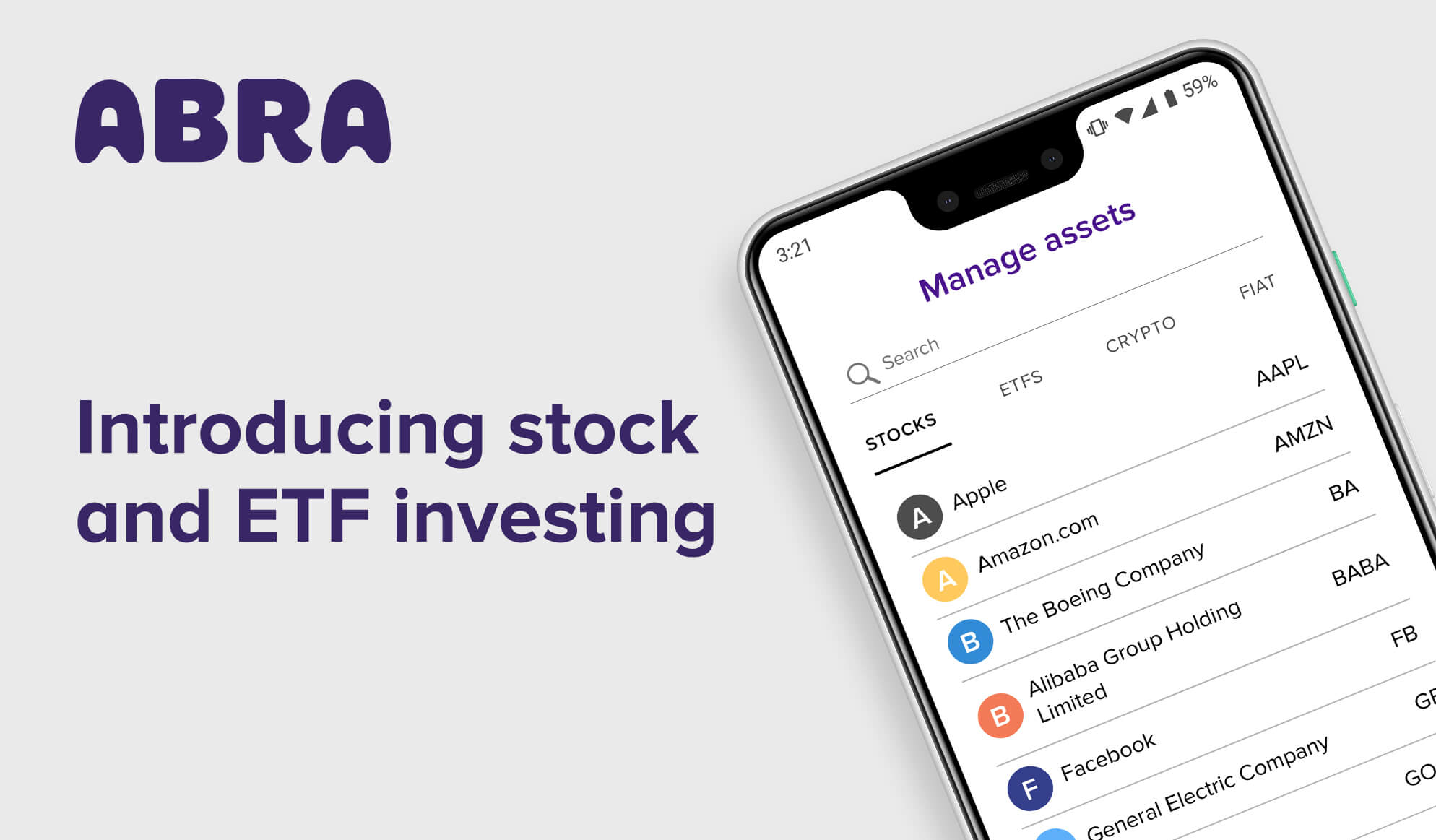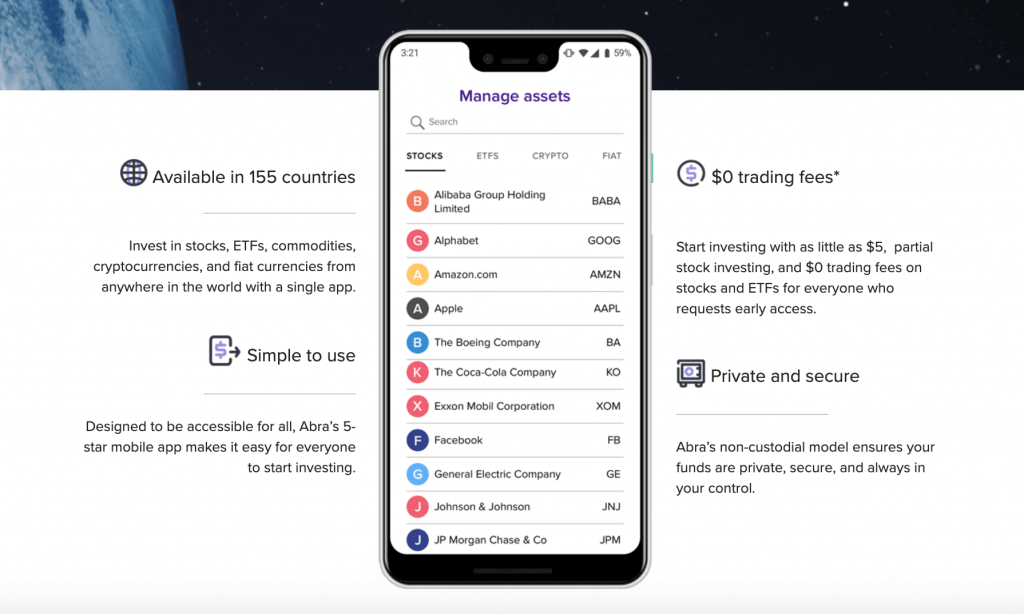
Abra users outside of the US can now fractionally invest in stocks
and ETF products using Bitcoin, the company announced on Wednesday.
Bill Barhydt, CEO and founder of digital wallet and exchange
services provider Abra, said the new product is targeted at users who would
otherwise not have access to US financial markets, enabling them to build
personal wealth affordably and in a convenient manner.
“The focus of this launch is to make financial markets of the developed world more accessible and affordable to those in emerging economies,” he said.

Through the Abra app, international users can now start investing
with as little as US$5 per investment through a fractionalized investment model.
The platform currently supports more than 50 stock and ETF products including
indexes such as Vanguard Growth and S&P 500, commodities like SPDR Gold
Trust and oil, international markets including Asia, Australia, Mexico, and
Emerging Markets index funds, and popular stocks such as Tesla, Uber, Apple,
Amazon, Google and Netflix.
Abra announced
the investing offering earlier this year. Barhydt stated in a blog post that
the company would begin with US products before adding more global assets in
the following months.
“Many consumers in the US and other countries already have access to stocks and mutual funds via online brokerages,” he wrote in a post in February.
“However, many people (billions actually) are shut out of these investment opportunities due to their geography, financial status or lack of accredited investor status, income level, or lack of trust for their local financial institutions.
“We’ve heard from many of our users that they would love to have one stop shopping from the Abra app for all of their investment needs. This new product release makes this wish a reality.”
According to Willie Wang, vice president of product at Abra,
tens of thousands of investors from around the globe had signed up for the waitlist.
Founded in 2014 and headquartered in California, Plutus
Financial, Inc., doing business as Abra, operates a mobile-based app that
allows users to buy, sell, store and invest in cryptocurrencies. The platform
is based on a non-custodial architecture, meaning that Abra doesn’t control or
have access to users’ funds. Instead, Abra uses Bitcoin and its blockchain
technology to store and encrypt cash deposits on the user’s mobile device.
As a special promotion for the launch of the investing product,
Abra is offering zero trading fees for the rest of 2019 on stock and ETF
investments.

